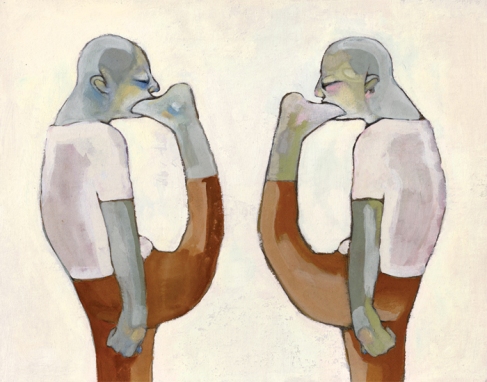How correct is Political Correctness?
What do you think of when you hear the words “politically correct”? Depending on where you are from, it is either something to be worked towards or something that is being taken to an extreme. And where I come from, political correctness is definitely the later. As defined by the Oxford English Dictionary, political correctness is “the avoidance of forms of expression or action that are perceived to exclude, marginalize, or insult groups of people who are socially disadvantaged or discriminated against”. And don’t get me wrong, I feel incredibly fortunate to live in a society that for the most part implements this behaviour. In fact, by others I am probably perceived as a politically correct person: I refrain from calling people words such as “retard” and “faggot”. For the most part, I find sexist, homophobic, and mental illness jokes tasteless. In short, I try not to offend and I take offense when others are being inconsiderate.
However lines need to be drawn somewhere, and that line is exactly where political correctness backfires. A few steps away from that line, you can find self righteous, holier-than-thou attitude. I’ll admit I’ve been guilty of this. Being politically correct feels can make you feel like you’re on a moral pedestal because the people beneath you seem ignorant and foolish. But putting yourself on a pedestal implies that you want congratulations for being so considerate which taints the original intention behind political correctness. Also to the average person, pedestals seem intimidating and unreachable while in reality, being considerate is something that everyone can and should work towards.
Even farther away from the line is where things begin to get scary. This is where you find people romanticizing the disadvantaged. This is often done with issues such as self harm, mental illness and poverty. While these things shouldn’t be made fun of and looked down upon, they should never be something to aspire to. This idolization might seem bizarre but I highly suspect that it stems from the media. Every successful movie or TV show there is features the underdog from average or unfortunate circumstances who goes on to achieve great things. In the case of unfortunate circumstance, it is more often than not poverty or illness. These are complex situations that movies and TV simplify for the sake of political correctness and profit. To name a few simplifications, the characters are always unrealistically good at heart and intelligent. Also, because these characters’ tales are told visually, they are incredibly good looking. In consequence illness and poverty turn charming, with people self diagnosing depression and social anxiety and disguising wealthy lives. This is not ok because it makes light of actual illness and poverty by focusing the image of appearing tormented, while knowing nothing about it. And ironically, this romanticized disadvantaged identity is brought to you by a put together, wealthy man in a business suit.
Now go even farther away from the line. This is where political correctness to the extreme is taken, and consists of disliking the advantaged groups. I see this “rage against the system” attitude everywhere. This is where feminism gets its (false) reputation of being man-hating. This is where white people shaming is completely accepted by everyone, sometimes even white people. Just because sexists and racists exist, doesn’t mean the entire group that they are from needs to bear the burden. And this might sound odd, but I’ve seen this “hate against my advantaged circumstances” card being pulled out to by some to further justify their misogyny and racism. Kind of like viruses becoming resistant to the “politically correct” vaccine and coming back even stronger.
So I guess what I’m trying to say is that people need stop self-aggrandizing, romanticizing and fanaticizing when it comes to political correctness. Because beyond certain limits, good intentions don’t do anyone any good.
